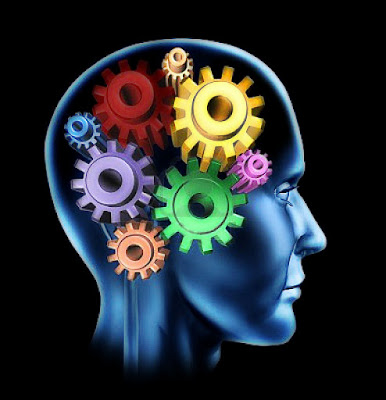The number of people who'll develop dementia in the next 20 years is expected to substantially increase. It’s no surprise then that millions of research dollars are being earmarked for unlocking the combination for sustained brain health—either to prevent dementia or, at least, slow it down. Much of this research targets pharmaceutical interventions, but there is increasing data substantiating the importance of lifestyle factors in sustaining brain health as well.
Let’s examine five that appear to influence brain health:
Nutrition.
No surprises here. In general, the types of foods and nutritional habits that reduce heart disease and diabetes appear to benefit the brain as well. A diet low in saturated fat and sugar promotes better blood circulation within the brain, whereas saturated foods clog the arteries that feed the brain. Several studies have found a protective effect with fish consumption, particularly those with higher omega-3 percentages, such as salmon and tuna. Nuts and dark-colored vegetables, berries, as well as the Mediterranean diet, which emphasizes plant-based foods including whole grains, legumes and nuts, plus a splash of olive oil, are also proven to help brain function. More recently, fish oil capsules in a recent study have been found to preserve cognitive function and brain volume. Further, deficient levels of Vitamin D have been found to significantly increase the risk of Alzheimer's disease.
Health.
As you might expect, high blood pressure and being overweight significantly increase the odds of dementia later in life. Weight gain can significantly elevate blood pressure, and high blood pressure increases the risk of strokes. Even small strokes (microinfarcts), which are often undiagnosed, may set up the brain for dementia. For example, studies have found that individuals who had high amounts of microinfarcts also had the lowest cognitive scores.
Brain Games.
Since the brain builds neural networks by learning new material, quite a bit of attention has focused on creating games that will build up the brain’s “muscle.” Crossword and math puzzles are frequently mentioned in this category. More recently, private companies have developed computer games for the purpose of stimulating different brain functions, particularly concentration. There is some data to support that this can make a difference, but the majority of this research has been conducted by the actual game manufacturers. Unfortunately, it appears that any gains achieved in these games do not typically extend beyond the specific game itself, let alone to daily life.
Stretching the Comfort Zone.
Muscles grow by being challenged and feeling uncomfortable. It is quite likely that the brain grows in the same way and, like a muscle, it too needs to be challenged in ways that make it somewhat uncomfortable. In particular, it might be that learning for the sake of learning is not always enough. Perhaps emotional challenges might offer a more substantive impact. For example, individuals who are engaged with others in problem solving show some protective effect against dementia.
Perhaps this is due to the brain being stimulated in both the cognitive problem solving and the emotional regions of the brain. Conversely, individuals who are depressed and isolated are at a higher risk for dementia. Overall, it is possible that the activities which are both a cognitive and an emotional challenge deliver the greatest benefit. Examples of these types of challenges include learning and conversing with others in a new language, taking up a musical instrument and performing with other musicians in front of live audiences, actively volunteering and participating in new causes that you feel passionate about, or even taking up public speaking–particularly if you have been fearful of doing so in the past.
Meditation and Hypnosis.
Both hypnosis and meditation have been proven to spark changes in the brain. They are capable of influencing vascular blood flow, electrical activity and stimulating specific regions of the brain. Furthermore, both approaches can influence the magnitude of inflammation in the body. These methods are excellent tools for controlling the stress and the fear response, which are directly connected to the inflammatory response. What makes this particularly important is that the inflammatory process is associated with dementia.
Although it has not been proven to cause dementia, there is strong evidence that it influences the progression of the dementia process. Additionally, inflammation is strongly linked with actually shrinking the hippocampus, the brain’s memory center, which is significant because an atrophied hippocampus is often found in Alzheimer’s. For many, the idea of taking time out for meditation and hypnosis might seem formidable. Fortunately, there are studies that reveal how even short interludes of hypnosis and meditation can make a substantive difference—even something as simple as listening to a guided recording at night.
The brain is a muscle, and like any other muscle, it needs to be kept in shape through nutrition, mind-body techniques, and interactive problem solving. Remember: A stimulated brain is a happy brain.

